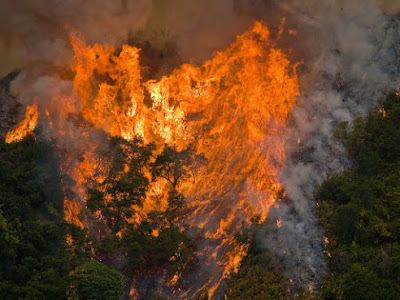I've been working way too many hours trying to fend off a serious threat to the environment in my own local area. That led to my being late on this blog.
The threat is called the Lake Whatcom Reconveyance.
Without boring you about local issues, the Reconveyance has world-wide implications.
 |
| Ignoring forest health leads to this as illustrated by an 1800s burned off area |
The land was dedicated to the timber industry because of a realization by Washington State legislators that an unhealthy timber industry means an unhealthy environment.
This blog has addressed the issue previously. Consider:
- A huge portion of the greenhouse gas emissions released to our atmosphere each year come as the result of forest fires.
- Studies estimate 25% or more of the mercury released to the atmosphere each year comes as the result of forest fires.http://www.sciencedaily.com/releases/2007/01/070109172159.htm
- Out of control forest fires boil out streams killing fish populations, burn habitat used by endangered species and otherwise cause environmental havoc.
- And so on...
A healthy forest products industry is required to maintain a healthy forest. If we kill the industry, we help kill the forests.
Too often our reactions to environmental issues are based on emotions rather than science; "Ummm, park good, cut tree bad."
If this blog does anything at all I hope it helps readers to realize that the discussion of issues about environmental impacts generally involve more complexity than the pop-environmental movements want brought up. All too often, the real purpose of the discussion is the raising of money rather than the solving of issues and full discussion confuses the donors.

No comments:
Post a Comment